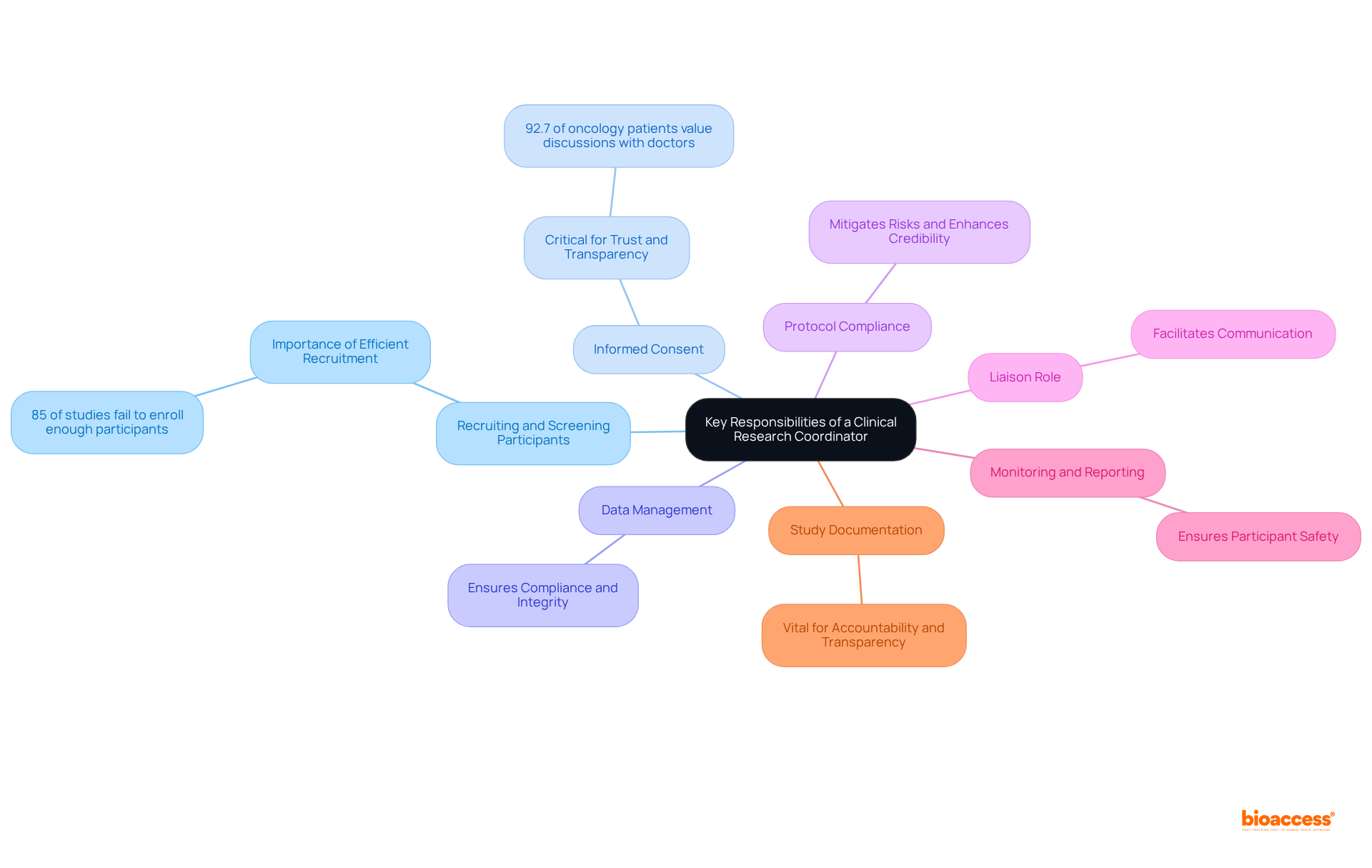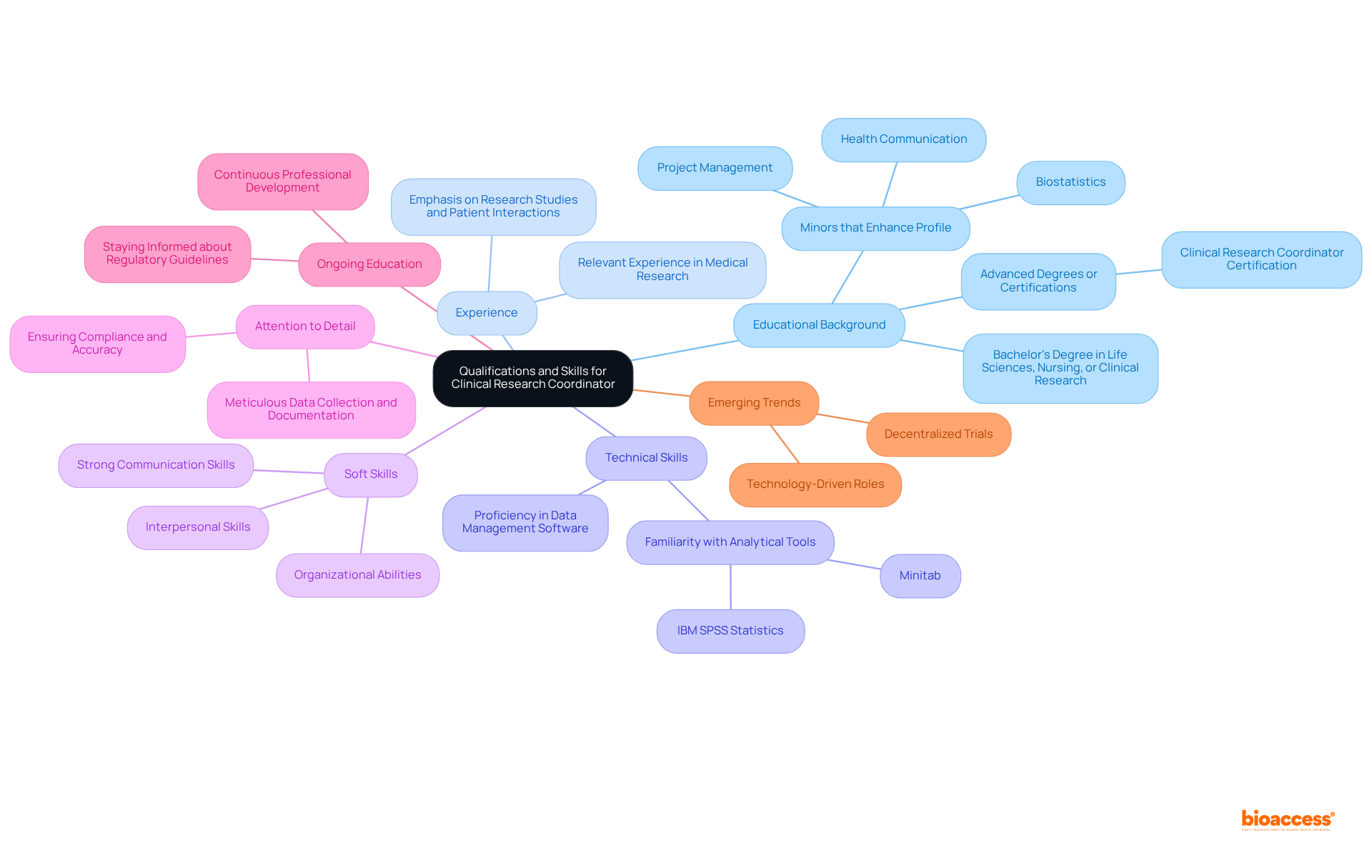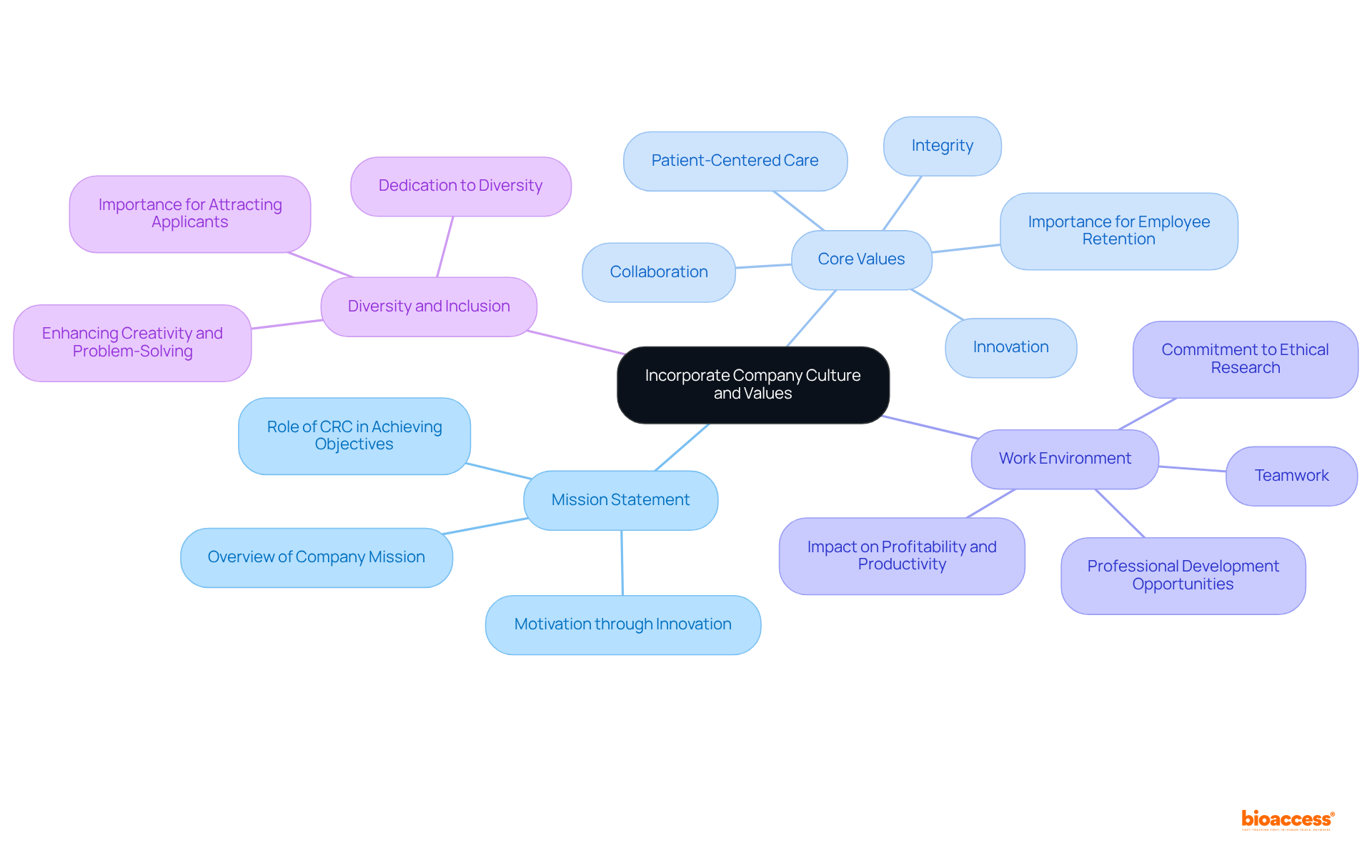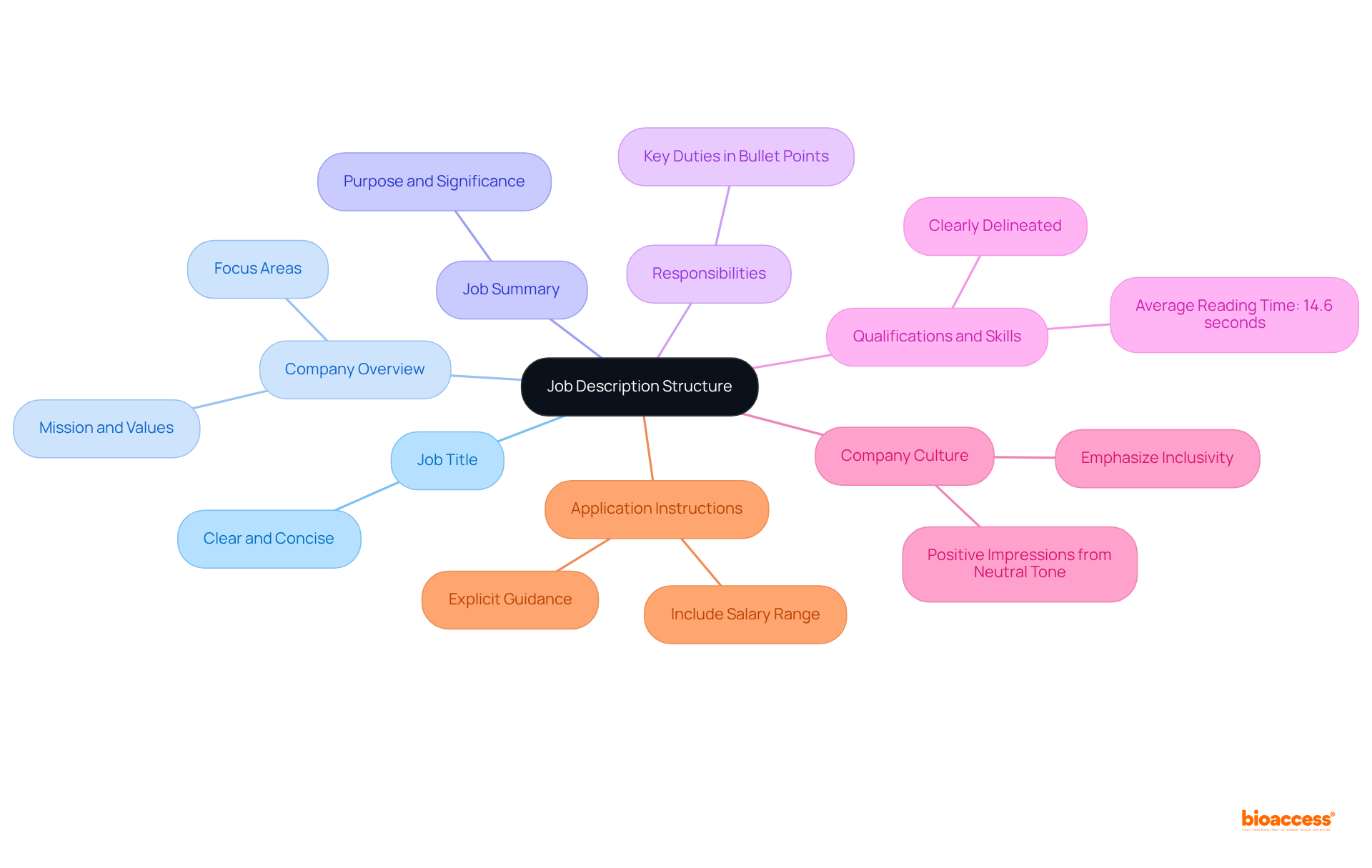


The article delineates the essential components necessary for crafting an effective job description for a Clinical Research Coordinator (CRC). It emphasizes key responsibilities, qualifications, company culture, and structural clarity. By highlighting the critical importance of participant recruitment, data management, and adherence to ethical practices, the article establishes a comprehensive framework. This framework ensures that potential applicants grasp the significance of the role and the skills required for success in clinical research.
Crafting a compelling job description for a Clinical Research Coordinator (CRC) is essential for attracting the right talent to this critical role in medical studies. Given the staggering statistic that nearly 85% of clinical trials fail to enroll enough participants, organizations are confronted with a pressing challenge in recruitment and retention strategies. This guide delves into the key responsibilities and qualifications of the CRC role, alongside the importance of aligning company culture with these positions.
By offering insights that can significantly enhance the effectiveness of job postings, we address a crucial question:
The clinical research coordinator job description outlines that the primary responsibilities of a Clinical Research Coordinator (CRC) are pivotal for the success of research studies. These responsibilities encompass:
Delays in research trials can cost sponsors between $600,000 and $8 million for each day a trial is postponed, underscoring the significance of efficient recruitment strategies. By clearly delineating these responsibilities, the clinical research coordinator job description offers a robust framework that prospective applicants can easily comprehend, reflecting contemporary developments in healthcare studies that emphasize the importance of effective hiring and participant engagement tactics.

When defining the qualifications and skills necessary for a Clinical Research Coordinator, it is essential to consider the following key elements:
Educational Background: Typically, a bachelor's degree in life sciences, nursing, or clinical research is required, with advanced degrees or certifications, such as Clinical Research Coordinator Certification, being advantageous. Approximately 60% of employers prefer applicants with a bachelor's degree, while 12% require a post-secondary certificate. Additionally, minors in Biostatistics, Project Management, or Health Communication can enhance a candidate's profile.
Experience: Relevant experience in medical research or related fields is often essential. Applicants should emphasize particular experiences with research studies, regulatory adherence, and patient interactions, as these are critical for success in the position.
Technical Skills: Proficiency in data management software, trial management systems, and electronic data capture tools is crucial. Familiarity with analytical tools such as IBM SPSS Statistics and Minitab can improve a candidate's profile, particularly as the clinical study market is anticipated to exceed $80 billion by 2025.
Soft Skills: Strong communication, organizational, and interpersonal abilities are essential for managing participant interactions and working effectively with project teams. The capacity to navigate intricate project dynamics and uphold a patient-focused approach is increasingly important, especially as 80% of studies encounter delays due to recruitment challenges. This underscores the necessity for soft skills in managing participant engagement and retention.
Attention to Detail: Emphasizing meticulous attention to detail in data collection and documentation is essential to ensure compliance and accuracy. This skill is crucial in a domain where 85% of studies face difficulties in enrolling sufficient participants promptly, highlighting the necessity for precision in every facet of the investigation process.
Engaging in ongoing education and obtaining relevant certifications as part of Continuous Professional Development can significantly enhance career prospects, as specified in the clinical research coordinator job description. Staying informed about regulatory guidelines and developments in study methodologies is vital for effective study management.
By clearly defining these qualifications and skills, organizations can attract individuals who are not only well-suited for the position but also capable of greatly enhancing the success of medical studies.

To effectively incorporate company culture and values into the job description, consider the following elements:
Mission Statement: Begin with a concise overview of the company's mission, illustrating how the Clinical Research Coordinator (CRC) role is vital in achieving these objectives. A clear mission statement not only guides the CRC's responsibilities but also aligns their work with the organization’s overarching goals. For instance, a mission statement emphasizing innovation in medical studies can motivate individuals to engage in pioneering investigations.
Core Values: Highlight the core values that shape the organization, such as integrity, collaboration, innovation, and patient-centered care. These values should resonate throughout the clinical research coordinator job description, highlighting the importance of ethical practices and teamwork in clinical studies. As noted, "Upholding like-minded values is essential for employee retention," reinforcing the importance of aligning values with applicant expectations.
Work Environment: Describe the work environment, focusing on aspects like teamwork, professional development opportunities, and a commitment to ethical research practices. Emphasizing a supportive and engaging workplace can attract individuals who thrive in collaborative settings. Research indicates that companies with engaged employees experience 21% higher profitability and 17% higher productivity, highlighting the value of a positive work environment.
Diversity and Inclusion: Clearly articulate the company’s dedication to diversity and inclusion, inviting individuals from various backgrounds to apply. Research shows that diverse teams enhance creativity and problem-solving, making this commitment essential for fostering innovation in clinical research. Furthermore, 78% of respondents appreciate working for organizations that prioritize diversity and inclusion, underscoring the necessity to attract a wide range of applicants.
By incorporating these elements into the clinical research coordinator job description, you create a compelling narrative that attracts individuals who align with the company’s values and inspires them to contribute significantly to its mission.

To structure the job description for clarity, adhere to the following guidelines:
By adhering to this structured approach, you create a clinical research coordinator job description that is both informative and engaging, thereby increasing the likelihood of attracting top talent. Additionally, consider that job descriptions under 300 words receive 8.4% more responses than average, underscoring the importance of brevity in your postings. Furthermore, 42% of employers have had to revise or rewrite their job descriptions due to attracting unqualified candidates, emphasizing the necessity for specificity.

Crafting an effective job description for a Clinical Research Coordinator is essential for attracting qualified candidates who can significantly impact the success of clinical trials. The outlined responsibilities, qualifications, and incorporation of company culture not only clarify expectations but also engage potential applicants in a meaningful way. By articulating these elements with precision, organizations can ensure they are well-positioned to find individuals who are not only skilled but also align with their mission and values.
The article delves into the critical responsibilities of CRCs, such as:
It highlights the importance of these tasks in the overall research process. It emphasizes the necessity of relevant qualifications, including:
These are vital for navigating the complexities of clinical trials. Furthermore, integrating company culture and values into the job description can enhance applicant interest and retention, ensuring that new hires are a good fit for the organization.
In summary, a well-crafted job description serves as a powerful tool in the recruitment process. It not only communicates the expectations and requirements of the role but also reflects the organization's commitment to ethical research practices and a supportive work environment. By following the best practices outlined in this guide, organizations can attract top talent and foster a culture that supports innovation and excellence in clinical research.
What are the primary responsibilities of a Clinical Research Coordinator (CRC)?
The primary responsibilities of a CRC include recruiting and screening participants, obtaining informed consent, managing data, ensuring protocol compliance, acting as a liaison, monitoring and reporting participant progress, and maintaining study documentation.
Why is participant recruitment important in clinical trials?
Participant recruitment is crucial because nearly 85% of all medical studies fail to enroll sufficient participants. Efficient recruitment strategies are essential for the success of clinical trials.
What is the role of informed consent in clinical research?
Informed consent is a critical responsibility where CRCs ensure that participants understand the study's purpose, procedures, risks, and benefits. This process is vital for fostering trust and transparency, which helps in participant retention.
How do CRCs manage data during a study?
CRCs collect, record, and maintain accurate data throughout the study, ensuring compliance with regulatory standards. This meticulous data management is fundamental to the integrity of the study.
What does protocol compliance entail for a CRC?
Protocol compliance involves ensuring that all study activities adhere to the study protocol and regulatory requirements, which mitigates risks and enhances the credibility of the study.
What is the liaison role of a Clinical Research Coordinator?
The liaison role involves acting as the primary point of contact between participants, investigators, and sponsors, facilitating communication, and addressing any concerns to maintain participant engagement.
How do CRCs monitor participant progress?
CRCs monitor participant progress and report any adverse events or deviations from the protocol to the Principal Investigator and regulatory bodies as required, ensuring participant safety and study integrity.
Why is thorough study documentation important?
Maintaining thorough study documentation, including regulatory submissions, participant records, and study reports, is vital for accountability and transparency in medical investigations.
What are the financial implications of delays in research trials?
Delays in research trials can cost sponsors between $600,000 and $8 million for each day a trial is postponed, highlighting the importance of efficient recruitment strategies.